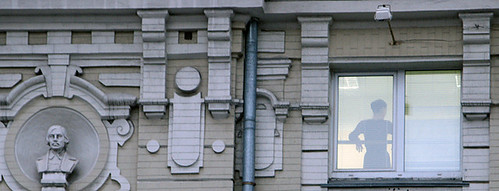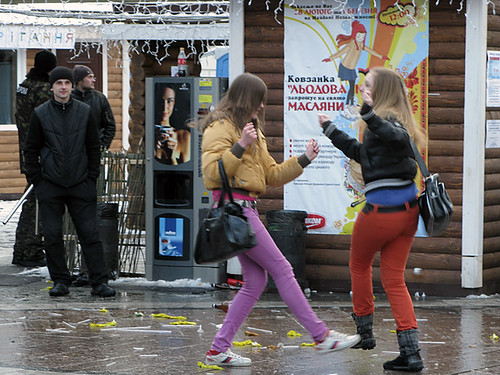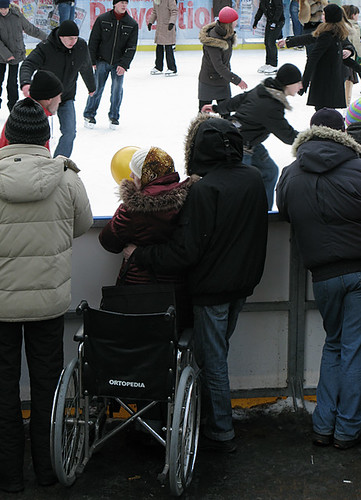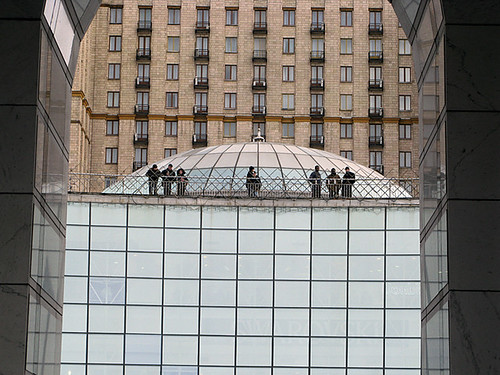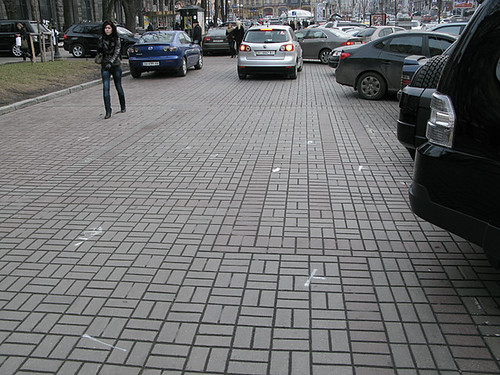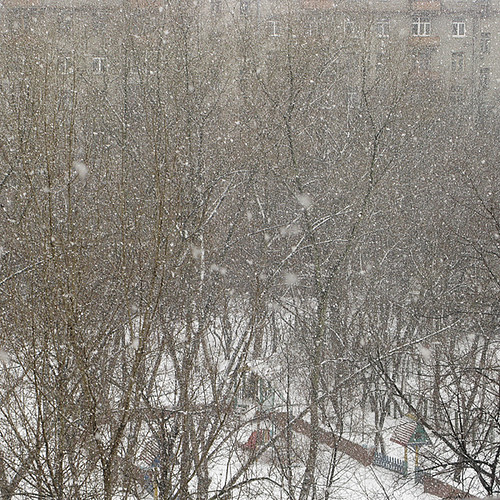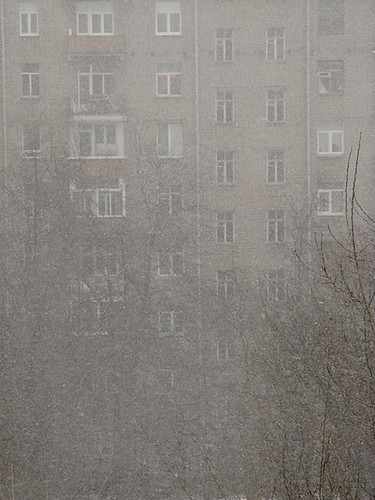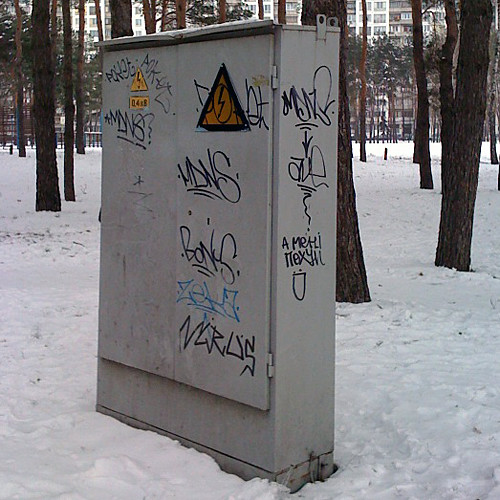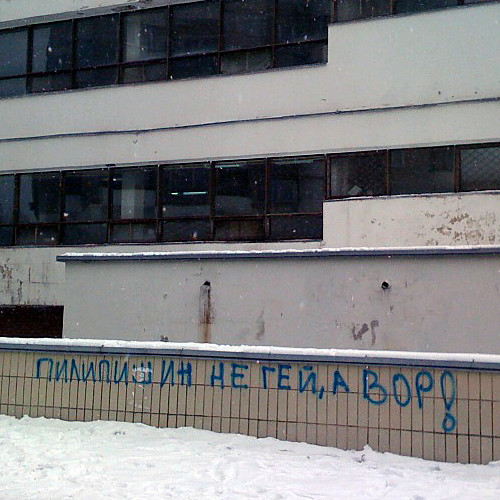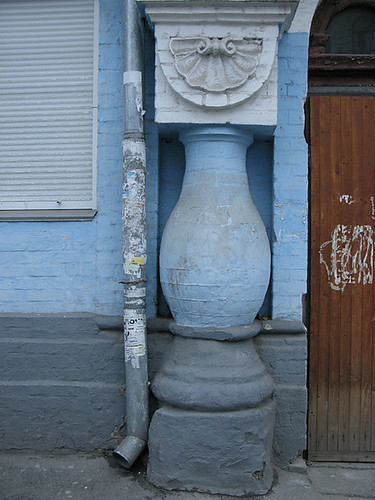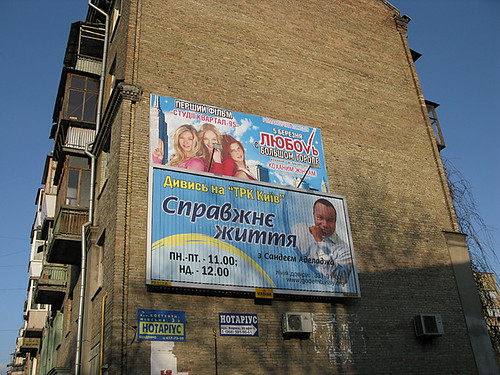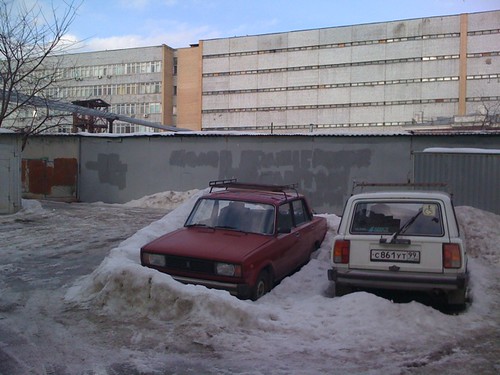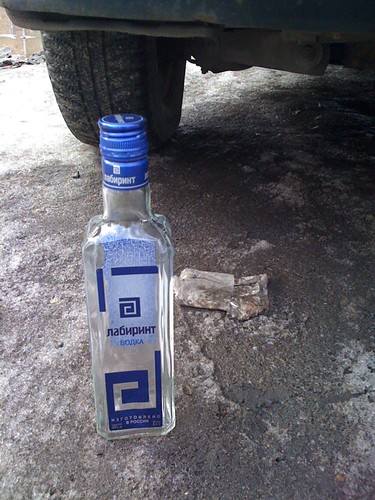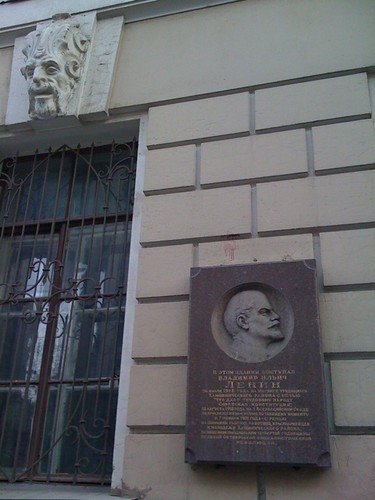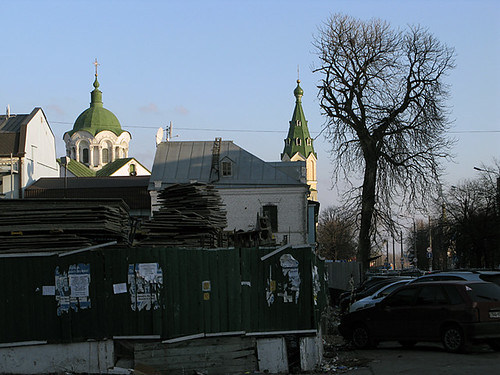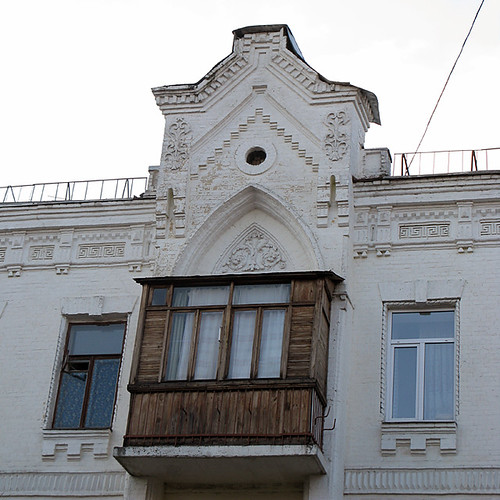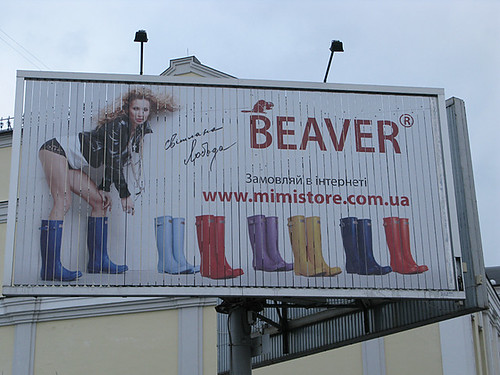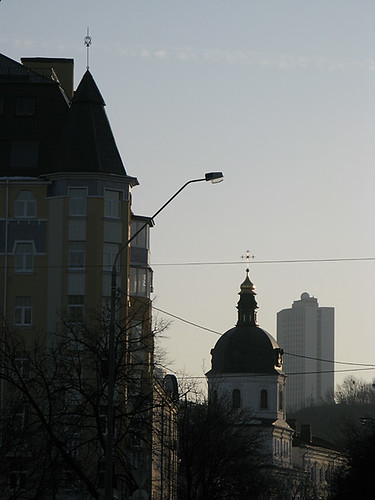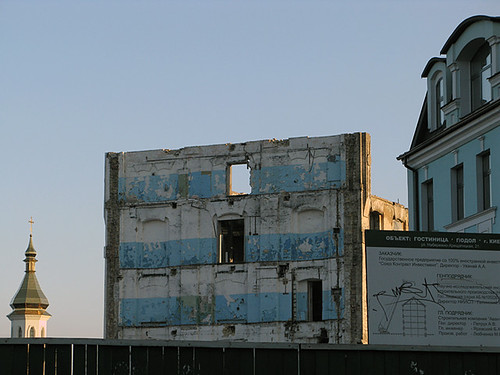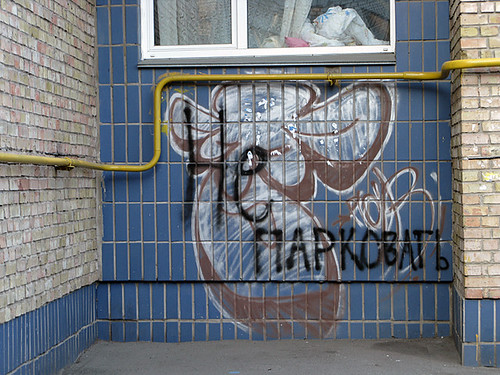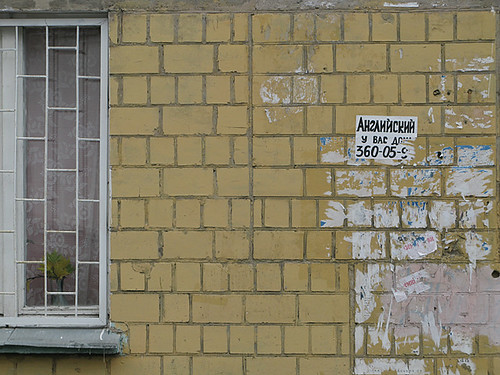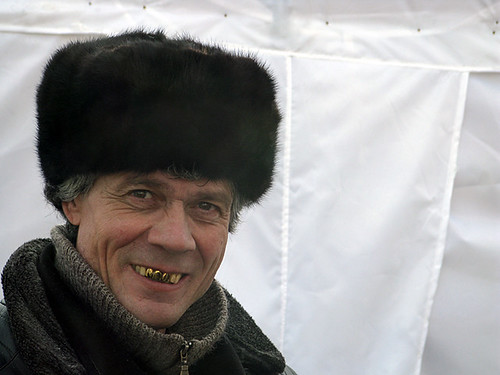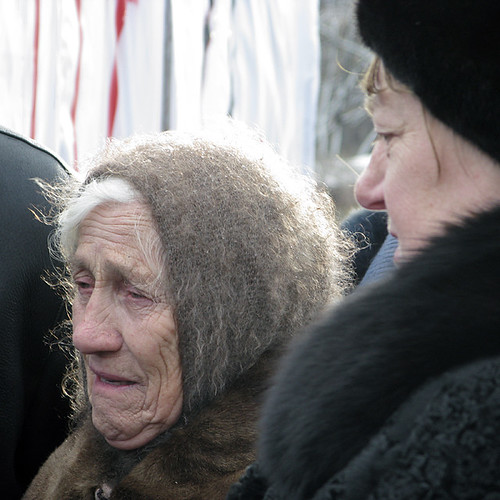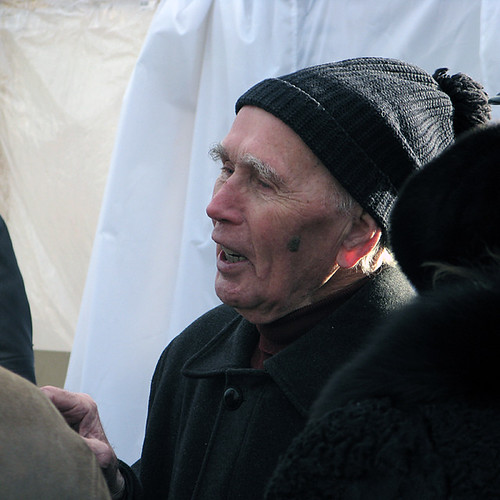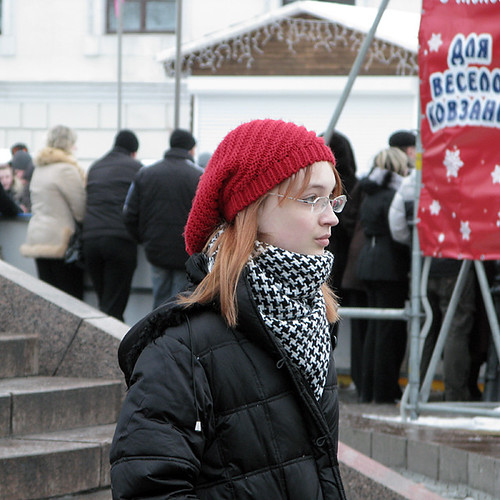Some noise in the media and on blogs about Yuri Hnatkevych's draft law on the state language and the languages of national minorities of Ukraine - specifically, the section on the media: according to Hnatkevych, all content should be in Ukrainian, regardless of whether media outlets are state-owned or private.
Slightly over a year ago, on May 23, 2008, Hnatkevych, an MP from BYuT, submitted 15 draft amendments to laws on education, media, commerce, tourism, law enforcement, the army, etc. - all of them proposing changes related to language use in the given areas. None of these drafts seem to have been considered by the parliament - most likely due to the negative assessment by the parliamentary scientific expertise department that at least eight of them received. Among the faults found with these drafts were positions that appeared to run counter to the constitution and other laws, as well as some mere technicalities (amazing, but several of the drafts proposed changes to earlier versions of the current laws that were no longer in use). Most important, however, seems to be the expertise department's observation that "the issue of language use has to be regulated by a special law, which is currently the Law of Ukraine "On the Languages in Ukraine" - which requires a substantial update."
And so now it looks like we have that umbrella law proposal. Hard to say whether Hnatkevych will have more luck with it.
Here, for example, is a passage from the expertise department's note on the 2008 draft amendment to the law on education:
[...] What also raises doubts is the proposal to take into account "the percentage of Ukrainians in a locality" and the "specific weight" [питома вага in the original - удельный вес: Hnatkevych taught German at Kyiv Polytechnics prior to becoming a politician - and I guess it shows...] of national minorities residing permanently in the given area when determining the number of seats in [Ukrainian-language and national minority-language schools]. It is impossible to determine "the percentage of Ukrainians in a locality" and the "specific weight" of national minorities, because right now no official document in Ukraine contains data on the the person's ethnicity. [...]
And here's a passage from the new draft, which appears to have been copy-pasted from Hnatkevych's previous, unsuccessful, attempt:
[...] The number of seats in [Ukrainian-language kindergartens and schools] has to correspond to the percentage of Ukrainians who live in this locality. The number of seats for extracurricular teaching of the languages of national minorities may correspond to the specific weight of the national minority or minorities who reside permanently here. [...]
To me it seems like some really sloppy legislative activity, but who knows, maybe Tymoshenko decided to pull Hnatkevych and his draft out of the closet following her bloc's defeat in Ternopil (more on that in an earlier post): the disastrous vote took place on March 15, the draft was submitted on March 17. A somewhat belated decision, but it's perhaps never too late to remind voters that Yulia's got people on her team who care about the Ukrainian language and culture as much as Tyahnybok does. On March 3, by the way, Hnatkevych voted in favor of the cancellation of the Ternopil election - but must have been allowed to abstain from voting foreign minister Volodymyr Ohryzko out.
Yes, and Yulia's team is so diverse.
A month or so ago, when I was in Kyiv, I was watching Savik Shuster's Friday show with my mother. They kept showing us a handsome young man who sat among politician guests, and I thought that perhaps the camera guy was gay, but then I noticed that they were zooming in on a good-looking woman as well, so we decided that the TV guys must have been so fed up with the ugly fat idiots that they had to work with every single weekday that they needed a little diversion.
Anyway, the guy turned out to be the Party of Regions' Mykola Levchenko, an odious politician who once said that Ukraine's sole official state language should be Russian, while Ukrainian should be the language of folklore and jokes (here's a link to an interview with him - he looks like an imbecile on the picture there, which he is, but on Shuster's show he somehow managed to look good).
The woman turned out to be Nataliya Korolevskaya (last name translates as "royal"). A member of BYuT, she's from Lugansk region, where she had (or still has, she or her family) an ice cream production business, among other things. Was rumored to be worth around $250 million (that's before the crisis, I suppose). Supported Yanukovych in 2004, got elected to parliament on Yulia's ticket in 2006 (#79) and in 2007 (#66). Two (rather old) links on her - here and here.
Nataliya Korolevskaya's brother - Konstantin Korolevsky - is the first deputy head of the department of urban construction policy, development and reconstruction of the city of Moscow. During Moscow mayor's infamous visit to Ukraine in late 2004, Korolevskaya was there to meet with him.
Here's an Oct. 2005 quote on Ukraine and Kyiv from Konstantin Korolevsky:
- Last night I returned from Kyiv (can't make myself call Ukraine a foreign country, but de jure it is.) In Kyiv, we have been allotted 10 hectares, and we had a large meeting with the head of the Kyiv City Council and leaders of the city's construction complex, during which we we making plans and setting up terms for developing the plot. Next year, we'll have to finish the first leg of residential construction there, even though the plot is problematic - a large water conduit happens to be in the area of the planned construction, and it'll have to be moved. [...]
And here's one of the most recent mentions of him: a piece on something that United Russia is up to, which I don't quite understand.
How Yulia manages to avoid a civil war within her bloc is beyond me.
But then again, she's someone who can pose for pictures hugging with Margaret Thatcher (ENG) one day and then announce (ENG) that "young people and children would want to become coal miners" in Ukraine, so it's probably not all that surprising.
